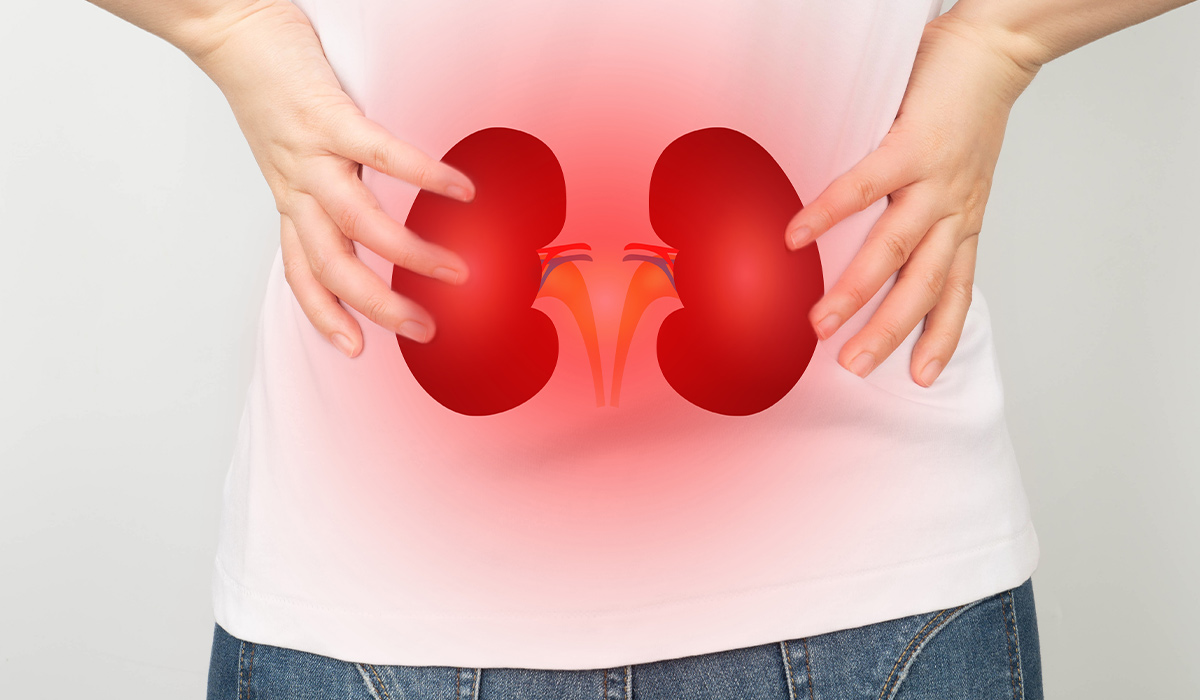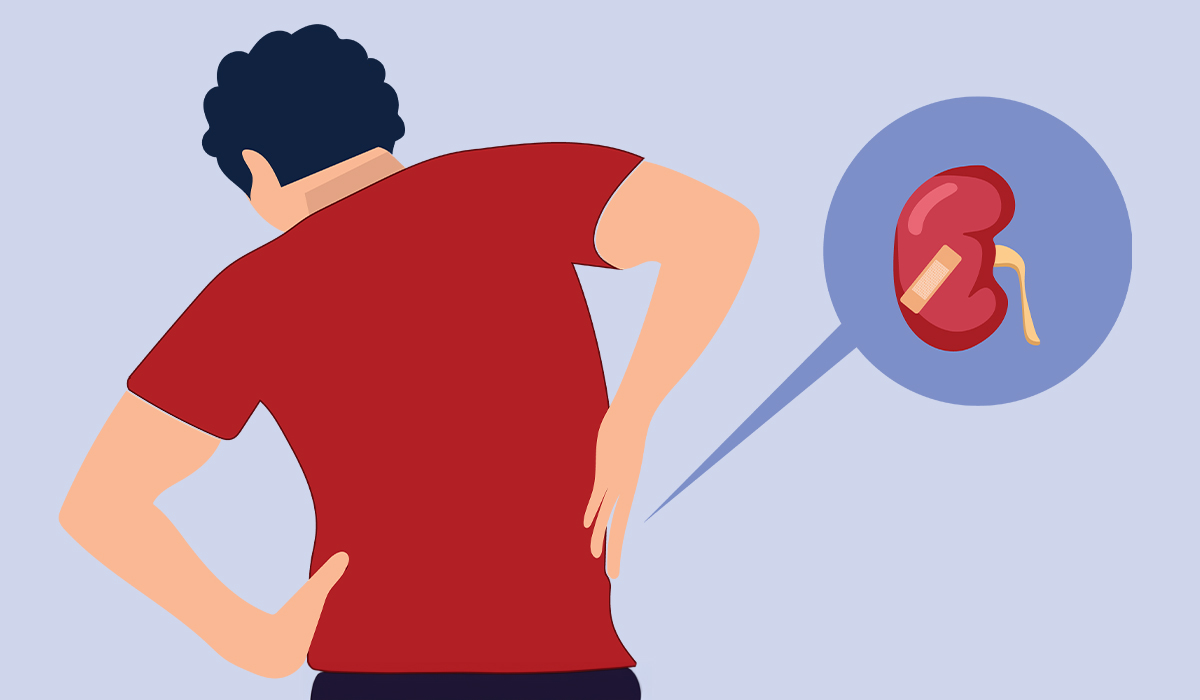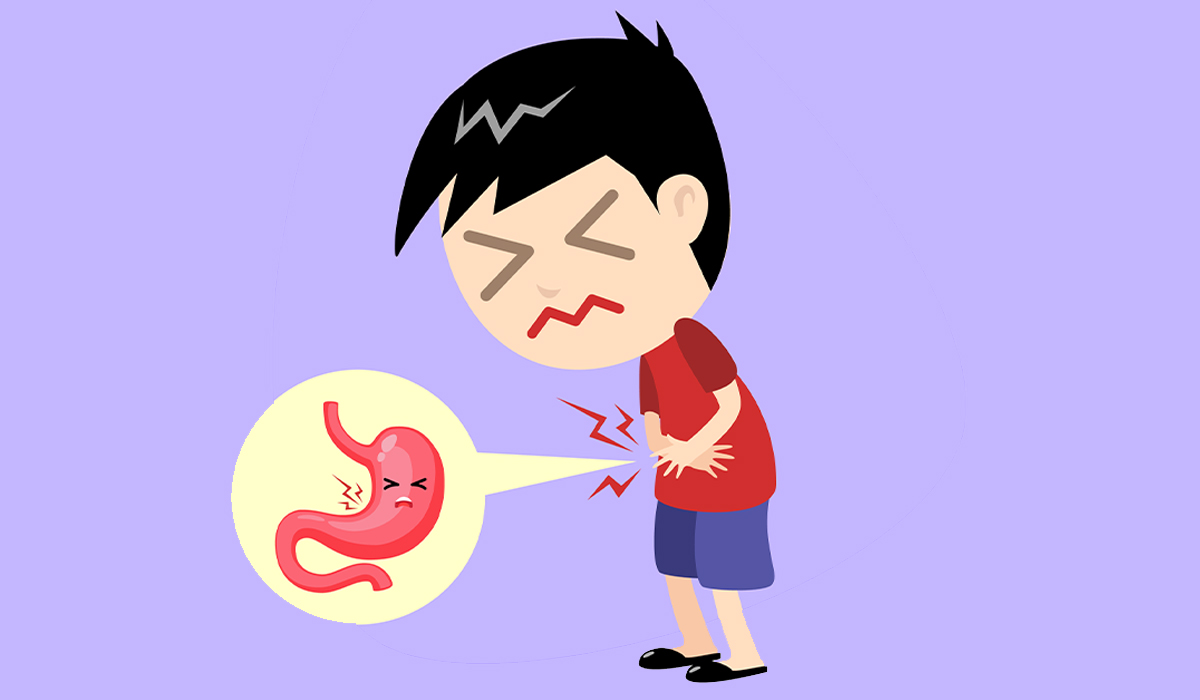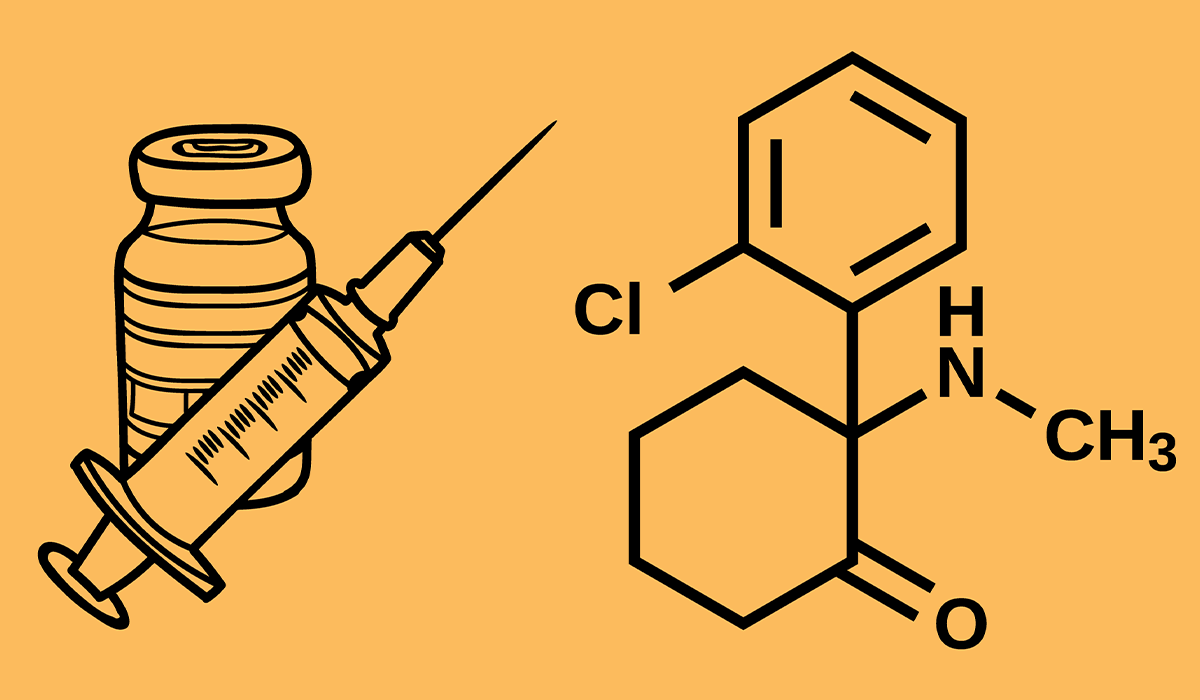Ibuprofen – belongs to the group of medications called non-steroidal anti-inflammatory drugs. It is a standard substance applied for pain of various origins and fever. In addition, the drug has an anti-inflammatory effect, inhibits platelet aggregation, and reduces blood clotting.
Compound drugs have also been developed. Such drugs contain more ingredients. In addition to ibuprofen, they have other active substances that enhance their effects. Ibuprofen is a generally safe drug. However, it is worth knowing the rules of safe dosage.
The mechanism of action of ibuprofen is simple. The drug inhibits (reversibly) the activity of cyclooxygenase. Cyclooxygenase is an enzyme that, among other things, transmits pain stimuli. These compounds regulate the entire body's functioning but also contribute to inflammation. Inhibiting the activity of cyclooxygenase leads to a reduction in the symptoms of inflammation.
Non-steroidal anti-inflammatory drugs – are a group of drugs that have a variety of uses. The drugs exhibit actions:
Drugs of this type are used both for different degrees of pain: from mild to severe. Non-steroidal anti-inflammatory drugs (NSAIDs) are popular drugs used for pain symptoms. Also an important function of these is their anticoagulant action.
NSAIDs differ in the severity of these actions, resulting in their different uses depending on the type of pain. The name of these drugs describes their chemical composition. Non-steroidal anti-inflammatory drugs are different from other anti-inflammatory medications. Their effect is based on the inhibition of prostaglandin cyclooxygenase.
The group of non-steroidal anti-inflammatory drugs includes:
Many of these drugs are readily available for purchase at the pharmacy. This limits control over the safety of their use. Patients should not use more than one drug of this type. Excessive use of such drugs does not increase their effectiveness only causes side effects.
Also, long-term use of non-steroidal anti-inflammatory drugs can have adverse health effects. The contraindications associated with the help of non-steroidal anti-inflammatory drugs are due to their impact on cyclooxygenase inhibition.

Ibuprofen is safe as it does not accumulate in the body; after 24 hours![]() , it is excreted unchanged or as an inactive metabolite. Ibuprofen has its highest concentration approximately 1-2 hours
, it is excreted unchanged or as an inactive metabolite. Ibuprofen has its highest concentration approximately 1-2 hours![]() after oral administration. A drop in temperature occurred within 4 hours of the first dose of ibuprofen.
after oral administration. A drop in temperature occurred within 4 hours of the first dose of ibuprofen.
The rate of absorption of ibuprofen also depends on the form of the drug.a It is eliminated from the body within 24 hours. Like any drug, Ibuprofen can have adverse effects if we exceed the safe daily dose. To avoid this, taking the lowest adequate amount for as long as possible is advisable until symptoms are relieved.
For adults and children over 12 years old, a 200 to 400 mg![]() dose every 6 hours is usually recommended. The maximum daily intake is 1200 mg of ibuprofen. But in exceptional cases, you can take higher doses. The doctor sometimes recommends strong measures. The dose of 2400 mg
dose every 6 hours is usually recommended. The maximum daily intake is 1200 mg of ibuprofen. But in exceptional cases, you can take higher doses. The doctor sometimes recommends strong measures. The dose of 2400 mg![]() is the final one, which, if exceeded, can be dangerous to your health.
is the final one, which, if exceeded, can be dangerous to your health.
For children, the dosage depends on the patient's weight and age, as does the maximum daily dose, which can be taken at intervals of at least 6 hours. A single dose of ibuprofen for a child is 5-10 mg/kg![]() body weight. For this, the daily dose is 40 mg/kg
body weight. For this, the daily dose is 40 mg/kg![]() . Medications containing ibuprofen can be taken from 3 months of age of the child.
. Medications containing ibuprofen can be taken from 3 months of age of the child.
Ibuprofen with short-term use in the recommended doses is generally well tolerated by the body. It brings the expected effect, and side effects rarely occur and are usually low intensity. Ibuprofen is widely used for various flu and cold symptoms, used symptomatically in common to moderate-intensity pain, combating fever, and inhibiting inflammation.
In addition, ibuprofen inhibits platelet aggregation and reduces blood clotting. Ibuprofen is used adjunctively in the treatment of some diseases and conditions, such as:

Ibuprofen is a reasonably safe drug for children, seniors, and pregnant women. Still, in each case, caution should be exercised, and it is essential to read the leaflet before taking the drug, as it may turn out that, in our case, another drug is a better choice. It can be given in smaller doses from the age of 3 months![]() .
.
Contraindications associated with using non-steroidal anti-inflammatory drugs are due to their effect on cyclooxygenase inhibition. Thanks to the prostaglandin it produces, the mucosa of the gastrointestinal tract is protected, and there is normal blood flow in the kidneys.
Thus, cyclooxygenase inhibition leads to a reduction in the protective effect on the mucosa. Also, it inhibits platelet aggregation, in effect reducing blood clotting. Taking this into account, ibuprofen should not be used in the following conditions and diseases:
Long-term use of ibuprofen can lead to ulcers![]() or increase their symptoms. This drug is also not recommended for people with hemorrhoids or other problems with the digestive tract. Having problems with clotting or taking anticoagulants, avoiding ibuprofen or taking it cautiously is better.
or increase their symptoms. This drug is also not recommended for people with hemorrhoids or other problems with the digestive tract. Having problems with clotting or taking anticoagulants, avoiding ibuprofen or taking it cautiously is better.
Taking non-steroidal anti-inflammatory drugs can also increase the risk of heart attack![]() . In addition, ibuprofen can significantly worsen the condition of a person struggling with chronic kidney disease.
. In addition, ibuprofen can significantly worsen the condition of a person struggling with chronic kidney disease.
Ibuprofen can adversely affect the health of some asthmatic patients; taking it can trigger severe asthma attacks![]() , which in extreme cases can even lead to a life-threatening condition. Also, ibuprofen should not be used during chickenpox.
, which in extreme cases can even lead to a life-threatening condition. Also, ibuprofen should not be used during chickenpox.
Ibuprofen is easily absorbed and relatively well tolerated by our body. However, knowing the rules of safe dosage and when not to use it is worth knowing. This will avoid many unpleasant consequences and protect our health.
Pregnancy is also an inadvisable condition for using ibuprofen. The drug is generally discouraged for almost the entire duration of pregnancy. It can be taken only in specific cases.
Scientists have noted that non-steroidal anti-inflammatory drugs can hinder conception. Therefore, women trying to have a baby should avoid ibuprofen. This drug can interfere with the implantation process. In addition, they can increase the risk of miscarriage especially around conception and in the first trimester of pregnancy. This risk is greater with long-term use of ibuprofen.
Later in pregnancy, non-steroidal anti-inflammatory drugs can interfere with the development of the baby. Ibuprofen and other drugs can also affect prolonged labor. In some cases, they cause pulmonary hypertension and reduce the amount of amniotic fluid.
Due to its different modes of action, paracetamol is a drug recommended as an alternative safe painkiller in pregnancy. However, it is best to consult a doctor before using any medicine.

Ibuprofen is one of the relatively safe drugs. The side effects of taking ibuprofen are infrequent. However, ibuprofen, like any other drug, can cause unpleasant side effects, which include:
Side effects of ibuprofen are mainly gastric discomfort![]() . Patients suffering from stomach disorders should therefore not take the non-steroidal anti-inflammatory drugs. Ibuprofen also belongs to the group of drugs that most irritate the stomach, and long-term use can cause gastritis.
. Patients suffering from stomach disorders should therefore not take the non-steroidal anti-inflammatory drugs. Ibuprofen also belongs to the group of drugs that most irritate the stomach, and long-term use can cause gastritis.
A particular form of bronchial asthma is aspirin asthma. It is characterized by hypersensitivity to non-steroidal anti-inflammatory drugs. Therefore, it is not recommended to use ibuprofen with bronchial asthma, which can trigger an asthma attack.
Skin reactions associated with the use of ibuprofen have also been reportedIf symptoms of sensitization (skin rash, lesions on mucous membranes, blisters) occur, the drug should be discontinued. With the help of laboratory tests, you can test in advance whether you have an allergy to ibuprofen.
Drugs containing ibuprofen are among the nephrotoxic drugs. They can cause severe kidney diseases, such as acute kidney injury, nephrotic syndrome, and acute nephritis. They often cause deterioration of kidney function in people with chronic kidney disease. On the other hand, liver damage can occur if high doses are used.
Such drugs also stimulate salt and water retention in the body, reducing the effectiveness of medications used to treat heart failure and hypertension. Water retention in the body can also result in edema.
Less common side effects include taste disturbances, increased blood pressure, blood clotting disorders, thrombocytopenia, and gastrointestinal bleeding. Ibuprofen can increase blood pressure and weaken the impact of blood pressure-lowering drugs. It can also affect blood changes.
Drugs containing ibuprofen are readily available, relatively inexpensive, and show rapid action. For this reason, they are often abused. An overdose of this substance can also occur as a result of combining it with certain medications. An overdose of ibuprofen is possible. Although symptoms of severe intoxication rarely occur.
A dose of more than 400mg/kg is considered toxic. It is usually associated with the onset of severe symptoms of poisoning. Symptoms of poisoning typically occur 4-6 hours after ingestion. If an overdose of the drug occurs, you should immediately seek medical attention or go to the hospital. There is no antidote for ibuprofen. In case of poisoning, symptomatic treatment is used.
Symptoms of ibuprofen overdose include:
Gastrointestinal complications most often manifest in ibuprofen poisoning. There is abdominal pain, nausea, and vomiting may occur. Ibuprofen applied in excess has a laxative effect, so diarrhea may also occur. If you take too much ibuprofen you may feel like you have food poisoning.
An overdose of ibuprofen can also produce nonspecific symptoms. Sometimes a rash or shortness of breath can be noticed. Ibuprofen poisoning also affects the patient's central nervous system![]() . Increased drowsiness, headaches, and tinnitus may accompany poisoning. However, it should be noted that in cases of severe ibuprofen poisoning, additional neurological disorders (coma, convulsions) may occur, and in children also apneic episodes.
. Increased drowsiness, headaches, and tinnitus may accompany poisoning. However, it should be noted that in cases of severe ibuprofen poisoning, additional neurological disorders (coma, convulsions) may occur, and in children also apneic episodes.
If the poisoning with the drug is severe, metabolic acidosis![]() , a disorder in which non-volatile acids increase in the body, can also occur. Acute kidney or liver damage is a characteristic symptom of severe poisoning and ibuprofen overdose. However, an overdose of ibuprofen is usually not very dangerous. Damage to internal organs is sporadic.
, a disorder in which non-volatile acids increase in the body, can also occur. Acute kidney or liver damage is a characteristic symptom of severe poisoning and ibuprofen overdose. However, an overdose of ibuprofen is usually not very dangerous. Damage to internal organs is sporadic.
There are contraindications to combining ibuprofen with other active substances. Therefore, it is a good idea to consult a doctor before using any drug. You should know basic information about the medications you are taking. The improper interactions of different medications can lead to a risk to health or life. It is not recommended to use ibuprofen with:
Non-steroidal anti-inflammatory drugs: Using ibuprofen with other non-steroidal anti-inflammatory medications increases the risk of side effects during therapy. Also, medicines with acetylsalicylic acid – can weaken the effect of ibuprofen and may impair the development of cardioprotection.
Hypertension medications: Ibuprofen may reduce their effect. It would help if you did not use ibuprofen for hypertension because ibuprofen can increase blood pressure and, at the same time, weaken the impact of blood pressure-lowering drugs. In this case, another drug containing paracetamol will be safer.
Diuretics: They should not be combined with diuretics. It can lead to kidney damage. In addition, ibuprofen can reduce their effect. People with kidney disease should avoid medications with ibuprofen.
Corticosteroids: According to medical experts, when corticosteroids interact with certain drugs, there is a higher chance of developing ulcers and experiencing gastrointestinal bleeding. These corticosteroids possess both anti-inflammatory and immunosuppressive effects. In case of pain, a safer option is to take paracetamol.
Drugs with d*****n: Drugs that contain d*****n have a significant interaction with Ibuprofen. This interaction causes an increase in the absorption and effect of d*****n. Moreover, the combined use of drugs containing d*****n can lead to a decrease in heart rate but an increase in the strength of heart muscle contractions. The toxic effects of d*****n can cause cardiac arrhythmias.
Quinolone antibiotics: In this combination, the risk of seizures and epileptic seizures increases. Quinolone antibiotics can cause serious side effects involving the nervous system, tendons, muscles, and joints. Therefore, it is better not to increase the risk and not combine this antibiotic with ibuprofen.
Lithium: Lithium interaction with ibuprofen can lead to increased levels of lithium in the body, affecting renal clearance. It is crucial to avoid taking these substances together. High concentrations of lithium may result in symptoms including confusion, seizures, memory impairment, nystagmus, coma, and potentially even death. If you experience any initial signs of poisoning, it is essential to discontinue the medication immediately and seek prompt medical attention.
Ibuprofen cannot be combined with other drugs but should also not be taken with alcohol. Ibuprofen and alcohol are a combination that can cause a lot of damage (damage to the gastric mucosa, leading to erosions and bleeding in the stomach). This combination can also cause kidney failure.
Taking ibuprofen alone is not beneficial for gastric mucosa, and mixing alcohol increases this risk. After a few hours (a minimum of 6) after taking the drug, drinking alcohol will not bring harmful effects. Then safety is preserved.
Other non-steroidal anti-inflammatory drugs and paracetamol should not be taken with alcohol. Paracetamol should not be combined with alcohol, as it can exacerbate the occurrence of side effects of the drug. It is hazardous to drink alcohol while taking the medication, as it increases the risk of liver damage.

Paracetamol and ibuprofen are commonly used drugs among children and adults. These are similar painkillers, but there are significant differences between the substances. By pointing out the differences and essential information, you can more easily decide which drug to choose depending on the situation.
Ibuprofen belongs to the group of non-steroidal anti-inflammatory drugs whose mechanism of action differs from that of paracetamol. Ibuprofen can be attributed to anti-inflammatory effects. Paracetamol, on the other hand, has no such effects.
Compared to paracetamol, ibuprofen is more likely to have side effects and has a greater number of contraindications. For this reason, paracetamol is generally considered a safer option and the recommended first choice for children. Ibuprofen should only be used when paracetamol isn't effective enough.
Paracetamol and ibuprofen are commonly used for pain relief, and they are generally believed to have similar effectiveness. However, research suggests that ibuprofen may be slightly more effective in reducing fever in both children and adults. In situations where fever persists, doctors may suggest alternating between paracetamol and ibuprofen. This approach aims to enhance the overall effectiveness of treatment while ensuring that both medications are taken within the recommended daily dosage limits.
Paracetamol is a fever and pain medication for children from the first days of life. Ibuprofen can be used only from the 3rd month. The World Health Organization (WHO) has declared that paracetamol is the safest or first-choice drug in infants and young children.
For pregnant women, paracetamol is a better choice. The effects of ibuprofen can be harmful to the course of pregnancy, so it is better to avoid it. On the other hand, during breastfeeding, both of these drugs are bepzieczne. However, the recommended dosage should be strictly observed. It is recommended to use such drugs for as short a time as possible.
Psychoactive substance addiction is the taking of substances over a long period of time in excessive amounts. It is a dangerous disorder and can involve different types of substances, such as alcohol or drugs. Ibuprofen is a drug with little addictive effect. While rare, there have been reported cases of ibuprofen addiction![]() .
.
Drug dependencies can involve a wide range of substances, with painkillers and anti-inflammatory drugs being common examples.. Drug addiction usually develops secondary to the patient's primary problems, such as psychiatric disorders or somatic diseases.
Long-term drug use can lead to mental and physical dependence, and the addict may experience abstinence syndrome symptoms. Treatment of drug addiction is a complex and lengthy process based on psychological therapy.
Long-term use of certain drugs can lead to various harmful effects, such as stomach ulcers and disorders affecting the kidneys, liver, or central nervous system. In addition, chronic high-dose usage of nonsteroidal anti-inflammatory drugs can negatively impact platelet aggregation and blood pressure.
This can result in an increased risk of cardiovascular incidents (including strokes and heart attacks). The drug ibuprofen should be used for as short a time as possible. A patient should not use the drug for more than three days without consulting a doctor.

Ibuprofen is a non-steroidal anti-inflammatory drug. Today it is prevalent because of its usefulness. Ibuprofen has analgesic, antipyretic, anti-inflammatory, and anticoagulant effects. It is considered a safe drug, so it is readily available. However, it is necessary to follow the dosage rules. Acute poisoning with ibuprofen leads to numerous damages and unpleasant symptoms. Damage to organs is a rare case, but it is possible.
Ibuprofen should not be combined with certain medications. It can have an impact on their effect. In addition, ibuprofen should not be combined with alcohol. This combination can cause stomach ulcers. Also, people with stomach ulcers should not take ibuprofen.
Therefore, paracetamol is considered a safer choice. This drug has fewer side effects and contraindications. However, paracetamol does not have an anti-inflammatory effect, which is essential in the case of infections. Remember to be responsible when taking any medication. Even with common painkillers, care must be taken.
Table of Contents

Paracetamol is a safe painkiller. But it can cause side effects. Overdosing is also dangerous. Learn the most important information… read more »

If food is spoiled, undercooked, or contains certain types of bacteria, toxins, or other harmful substances, it may cause food… read more »

Sun Poisoning is a more severe form of sunburn. Additional distressing symptoms may occur. Learn about the effects of sun… read more »

Kidney infections are a heterogeneous group of diseases characterized by inflammation of one or both kidneys. What are the symptoms… read more »

Kidney stones can form for a variety of reasons. Learn about factors that increase the risk of kidney stones. See… read more »

Roseola is an infectious viral disease characterized by high fever and a rash. It usually affects children under two years… read more »

Kidney pain, also known as renal pain, begins from the pair of bean-shaped organs at the back of your stomach… read more »

Gastroenteritis is a diarrheal disease. Viral infections are a common cause. How to recognize it? How is gastroenteritis treated? read more »

Ketamine is a drug used for anaesthesia or treatment of various conditions. However, the substance can pose risks. Find out… read more »